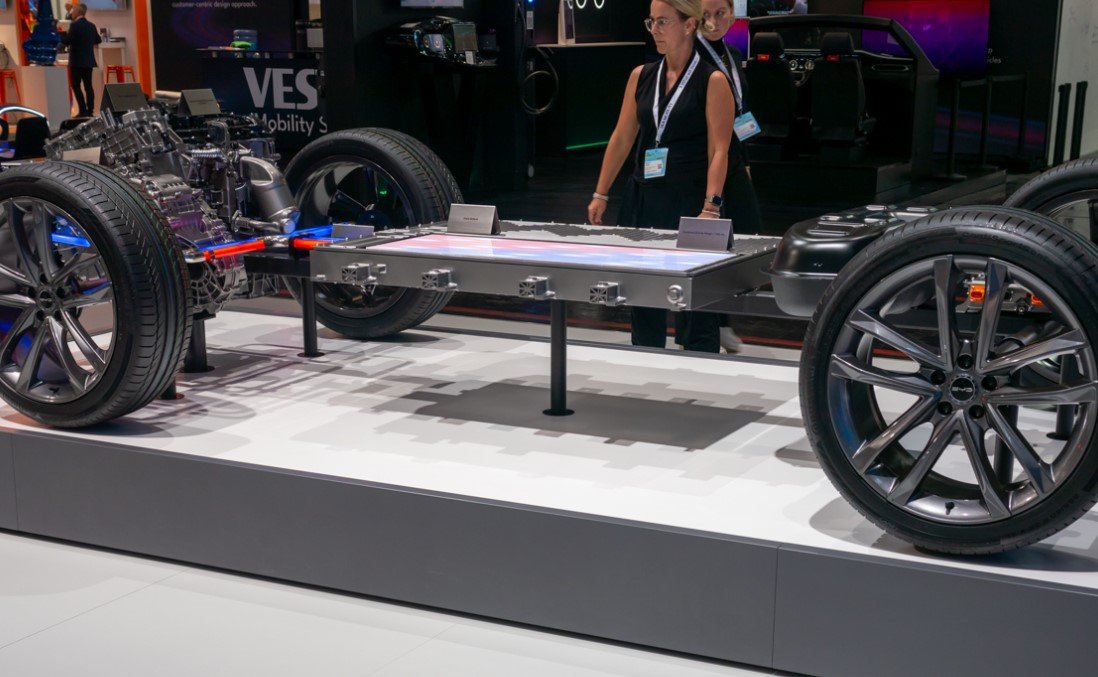The automotive industry stands on the brink of a revolution, with electric vehicles (EVs) poised to redefine mobility. Central to this transformation is the automotive battery management system (BMS), a technology that ensures the reliability and efficiency of the EVs’ heart—the battery. As we look towards 2028, the BMS market is projected to burgeon from USD 4.7 billion to an impressive USD 11.7 billion, marking a compound annual growth rate (CAGR) of 19.8%. This growth is not just numerical; it represents the accelerating shift towards sustainable transportation and the technological advancements propelling it.

The Core of Electric Vehicles
The BMS is the unsung hero of the electric vehicle, quietly but crucially maintaining the battery’s health and longevity. It’s a complex network of sensors and algorithms that monitor and manage the battery’s state of charge, temperature, and voltage, among other parameters. This vigilance is vital, as it prevents the battery from operating outside its safety parameters, thus averting potential failures.
The Lifeline of EVs
At the heart of every electric vehicle is its battery, and the BMS is its lifeline. By continuously monitoring the battery’s vital signs, the BMS ensures that the vehicle can reliably get from point A to point B without incident. It’s a guardian that works in the shadows, indispensable yet often overlooked.
A Balancing Act
One of the primary functions of a BMS is to balance the battery cells. This balancing act is crucial for maintaining the battery’s health and can significantly extend its lifespan. By ensuring that all cells work together harmoniously, the BMS maximizes the battery’s performance and, by extension, the vehicle’s range and power.
The Safety Net
Safety is paramount in electric vehicles, and the BMS is the safety net that catches potential issues before they become problems. From preventing overcharging to averting thermal runaway, the BMS is the first line of defense against the myriad of risks associated with battery operation.
Innovation Drives Market Expansion
The BMS market is expanding rapidly, driven by innovation and the increasing adoption of electric vehicles. As manufacturers strive to meet the growing demand for EVs, they turn to advanced BMS solutions to ensure their vehicles are safe, reliable, and efficient.
The Lithium-Ion Leap
Lithium-ion batteries have revolutionized the automotive industry with their high energy density and efficiency. The BMS plays a pivotal role in managing these batteries, ensuring they deliver peak performance while maintaining safety standards. As the preferred choice for EVs, lithium-ion technology’s continued evolution is inextricably linked to the advancement of BMS.
The Quest for Quality
Quality is non-negotiable when it comes to BMS. Manufacturers are constantly seeking ways to enhance the accuracy and reliability of these systems. The quest for quality drives the market forward, pushing the boundaries of what’s possible in battery management technology.
The Integration Imperative
As electric vehicles become more complex, the integration of BMS with other vehicle systems becomes increasingly important. An integrated approach allows for more sophisticated management strategies, optimizing the vehicle’s overall performance and energy consumption.
The Road Ahead: Challenges and Opportunities
The future of the BMS market is bright, but not without its challenges. As the technology advances, manufacturers must navigate the complexities of integrating BMS with increasingly sophisticated vehicle architectures. The opportunities, however, are vast. The BMS is a cornerstone of the electric vehicle revolution, and its evolution will continue to shape the future of transportation.
The Sustainability Challenge
Sustainability is a driving force behind the adoption of electric vehicles, and the BMS is a critical component in achieving this goal. As the industry moves towards a greener future, the BMS will play a key role in making electric vehicles a viable and sustainable option for consumers.
The Innovation Imperative
Innovation is the lifeblood of the BMS market. As battery technology evolves, so too must the systems that manage them. The race to develop more advanced, more efficient BMS is on, and it’s a race that will determine the winners in the electric vehicle market.
The Global Perspective
The BMS market is not just growing; it’s globalizing. As electric vehicles gain popularity around the world, the demand for BMS will continue to rise. This global perspective opens up new markets and opportunities for manufacturers, driving further growth and innovation.
















